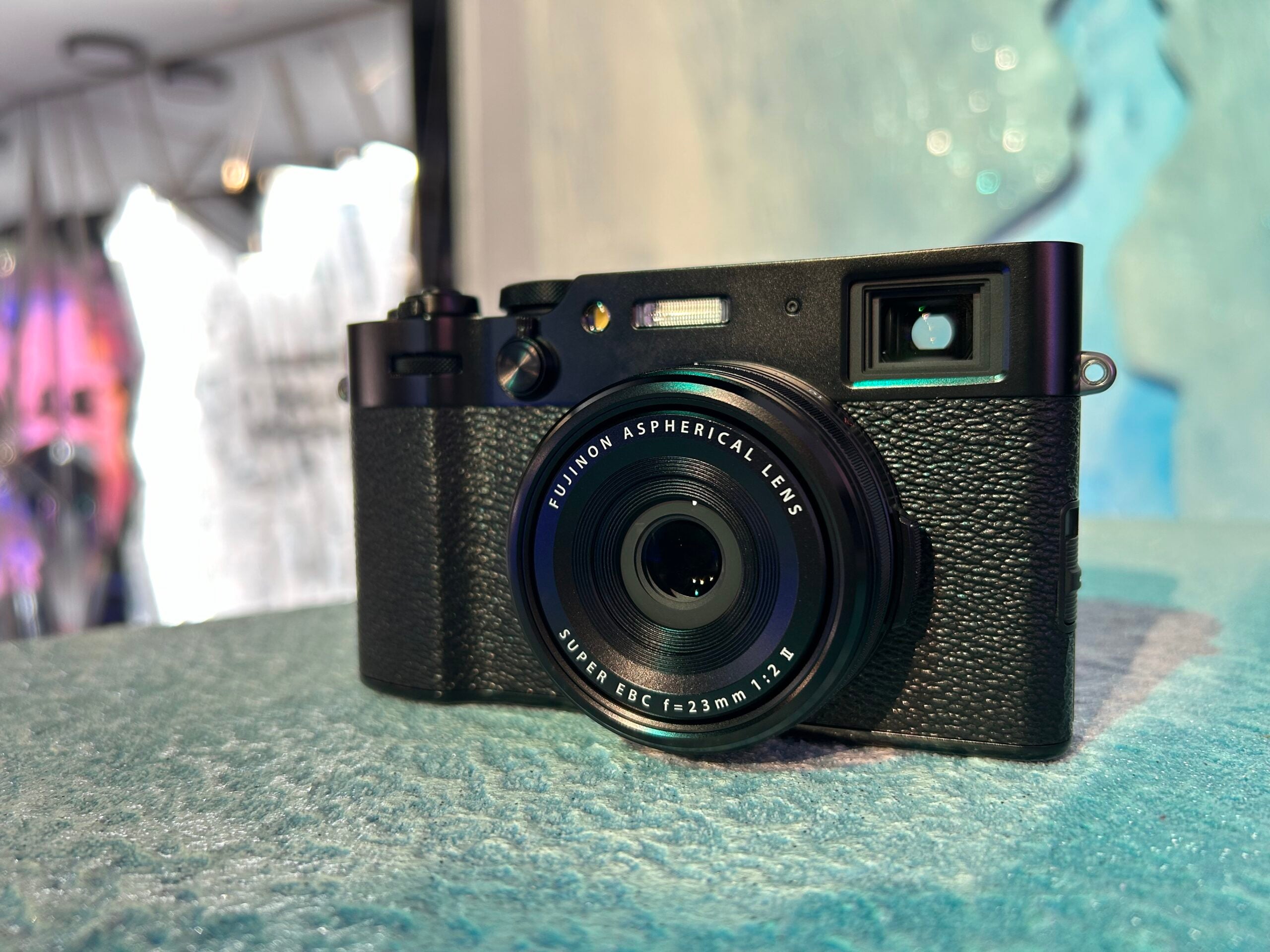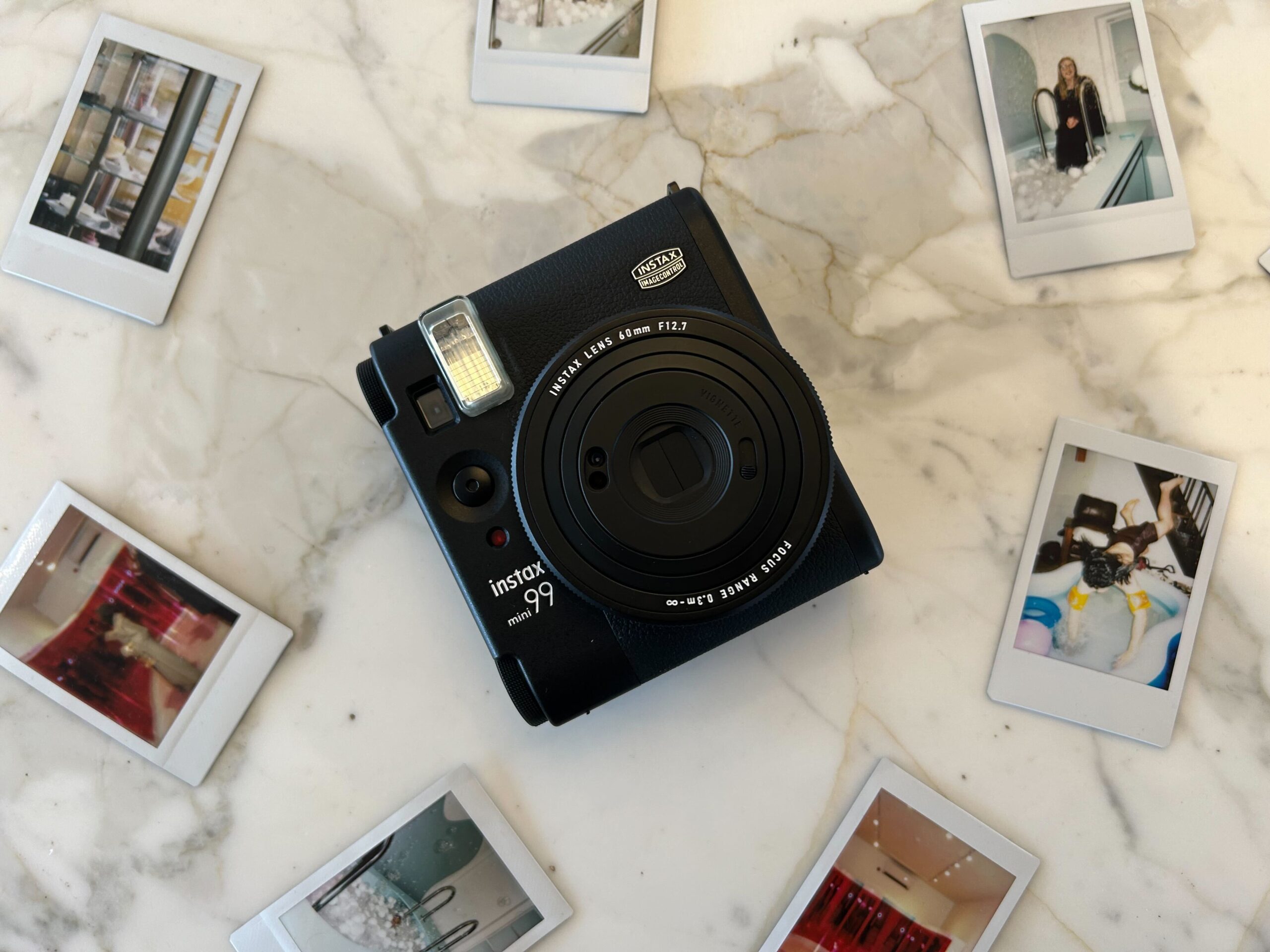Insta360 Ace Pro Review
There’s loads to like about Insta360’s spirited GoPro Hero rival




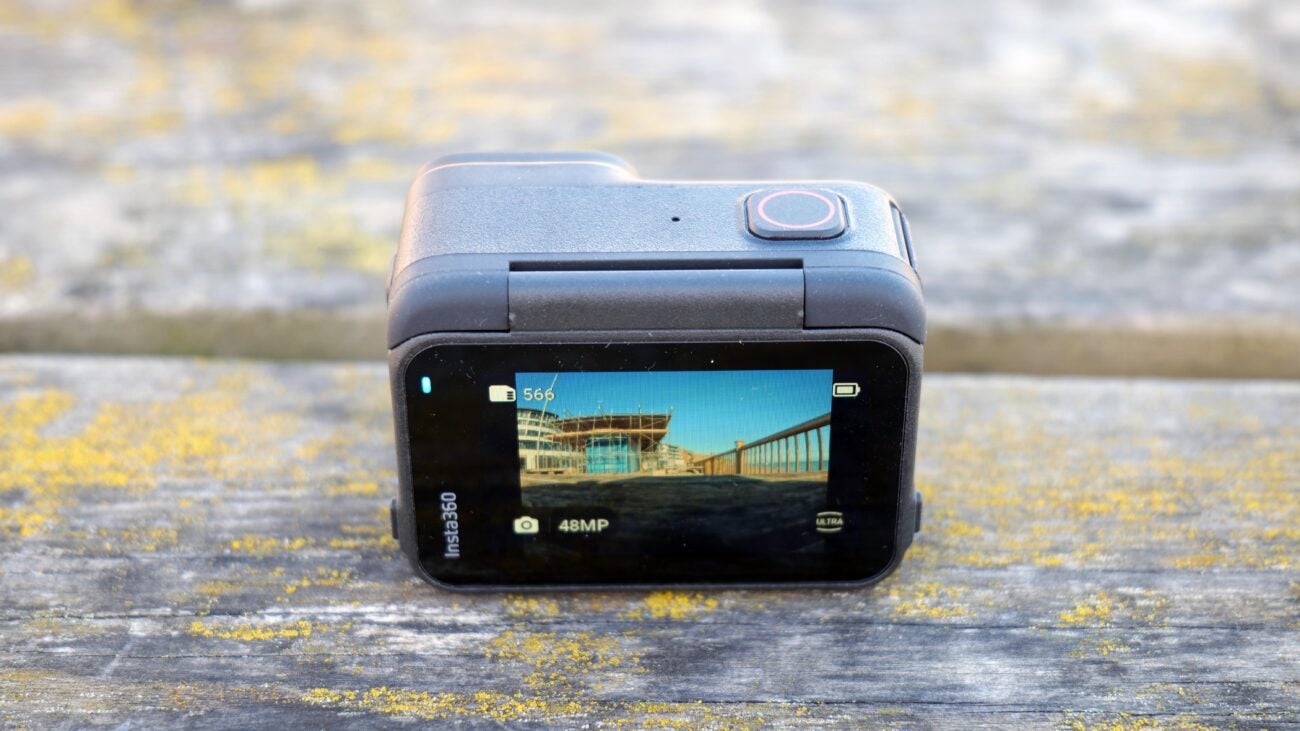


Verdict
The Insta360 Ace Pro is a bold attempt to take on GoPro and DJI, and while I couldn’t call it markedly superior to either, it’s capable of holding its own against both – while offering some features (like the flip screen) you don’t find elsewhere. All told, another quality addition to the action cam market.
Pros
- Front-facing flip screen
- Strong low-light performance
- Good software and companion app
Cons
- Mounting clip can be a bit fussy
- No 10-bit video option
Key Features
- Large image sensor48MP 1/1.3-inch sensor co-developed with Leica
- 2.4-inch flip screenScreen can face forwards for easier selfie capture
- Gesture and voice controlsHands-free control options to boost usability
Introduction
It’s almost unbelievable to think that the Ace Pro is Insta360’s first ‘traditional’ GoPro Hero-style action camera.
The Chinese company has been steadily turning out impressive specialist cameras – 360-degree action cams, super-compact action cams and a nifty face-tracking webcam – for years, but had yet to venture onto GoPro’s home turf. Until now.
The Insta360 Ace Pro may look like other conventional action cams, but it offers a raft of features in an attempt to stand out from the pack; the company has been keen to talk up the camera’s ‘premium’ image sensor, flip-up screen, low-light capabilities (an area where the GoPro Hero has always been weak) and AI-assisted highlights editor.
So is it a GoPro beater? And how does it fare against the solid recent showing from DJI’s own GoPro rival, the Osmo Action 4? Having been putting it to the test in a variety of situations over several days, here’s what I’ve discovered.
Design and handling
- Built to IPX8 standards (waterproof to 10m)
- microSD card slot and USB-C port
- 179.8g weight and 71.9 x 52.15 x 38.5mm dimensions
The Insta360 Ace Pro’s shape and build quality is similar to that of a GoPro Hero and, like the current Hero 12 Black, it’s waterproof to a depth of 10m out of the box (fit it with the optional dive case and it’ll happily go to 60m – also the same as the GoPro).
The top-mounted record button and side-mounted on/off button are big and chunky, making them easier to press with wet or gloved hands, while the microSD card, USB-C port and battery are all concealed behind secure, water- and dust-proof flaps.

I found the controls easy enough to use (I mean, there are only two physical buttons on the thing) and the camera is both lightweight and chunky enough to hold comfortably in one hand.
Of course, it works best on a mount but, unlike the Hero 12 Black, there are no built-in mounting fingers. Instead it comes with a magnetic clip for the purpose of securely fixing it to the likes of bike frames, helmets, surfboards and selfie sticks, and while this supports rapid attachment and detachment compared to a GoPro I did find that I needed to be careful when reattaching the camera to the mount – the magnet makes the camera feel securely fixed even if it isn’t attached to both clips. I had to give it a firm push to ensure it was clipped in and wouldn’t fall off.
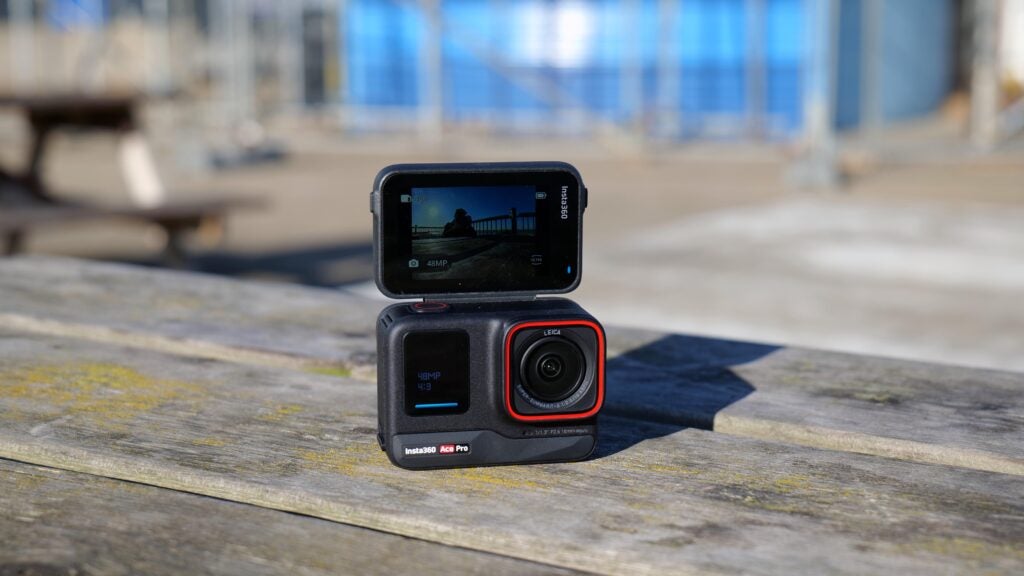
The best and most notable design touch is the rear display, a 2.4-inch touchscreen that’s able to tilt up by 180º to face forwards. While I do wonder if it could be a potential break-point in the event of the camera being dropped, this flip screen is invaluable when capturing selfies and vlogs, and arguably superior to the GoPro’s one big back screen, one small front screen approach. The Insta360 Ace Pro does have a small front display, but it’s simply for showing current settings information (which it does well enough).
Features and performance
- Strong battery life and fast charging
- FlowState image stabilisation
- Built-in AI Highlights Assistant
The Insta360 Ace Pro’s 1650mAh battery seems to go on and on. In my day-to-day testing I never saw it dip below 50%, and a stress test – in which I set it continually recording at 4K/30p to see how long it lasted – saw the microSD card fill up before the power ran out; after 1 hour and 15 minutes of UHD video capture, it was still going strong (albeit with the icon showing it close to depletion).
This seems slightly better than the battery life on the GoPro Hero 12 Black, but perhaps doesn’t quite match that of the DJI Osmo Action 4. I’d be interested to put the two head-to-head, but unfortunately no longer had my Action 4 review sample to hand. The battery charges quickly as well, going from empty to 80% in about 20 minutes and to full in about 45.

The camera comes with electronic image stabilisation in the form of Insta360’s FlowState technology, which I found to be generally impressive at keeping video smooth. It comes in three user-selectable levels and even offers decent 360º automatic horizon-levelling (albeit only when filming in the FreeFrame video mode; during regular video, only 45º of horizon lock is available).
Even though I don’t think it’ll be that popular, I feel I should mention the built-in AI Highlights Assistant. You feed it a selection of videos and it chews them up and spits out a highlight reel ready for sharing. You can tweak it slightly if you want, but it’s mostly done by AI. It’s quite impressive and potentially useful for busy people looking to quickly share videos of holidays and trips with family and friends.
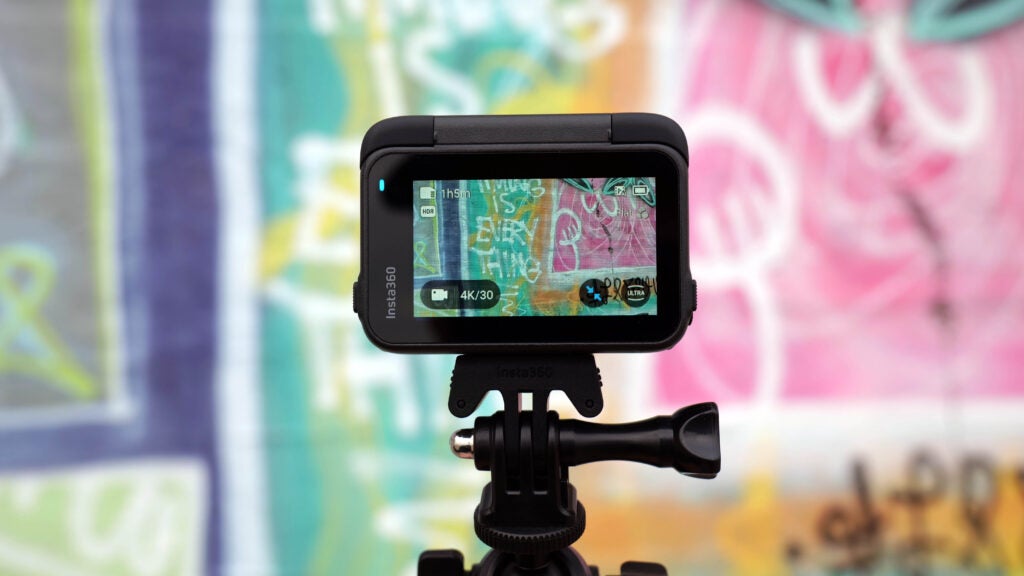
Finally, a quick word on the Insta360 mobile app, which has been around for years and has grown into a really solid option for remotely controlling your action cam, reviewing/editing footage and sharing it online. I mostly skipped the app and used the camera itself in the process of this review, exporting my footage to a PC to edit it – but the few times I did fire up the app on my iPhone, it didn’t let me down.
Video and photo quality
- PureShot low-light video mode
- Stabilised HDR video
- 48MP/12MP photos
The Insta360 Ace Pro, reportedly co-engineered with Leica, packs a large 1/1.3-inch sensor that dwarfs the GoPro Hero 12 Black’s 1/1.9-inch sensor and is the same size as the DJI Osmo Action 4’s.
The latter has been the best GoPro-sized action cam for capturing clear, crisp low-light footage since its release earlier this year, but I think the Insta360 Ace Pro beats it. I found its low-light PureShot video mode impressive (by action cam standards, at least) in terms of the detail it can draw out of very dark, gloomy scenes.
Its low-light footage isn’t perfectly clean by any means – as you can see from my test footage below, it’s still softer and smearier than the daylight footage, and there are some strange artefacts that seem to appear corresponding to movement – but it’s far better than the Hero 12 Black’s and, I think, slightly punchier than the Osmo Action 4’s. PureShot footage is stabilised too, but restricted to 30fps; if you want to shoot smooth 60fps action footage at night, you’ll have to use the regular video capture mode.
There are few restrictions when it comes to regular video, however: the Ace Pro records 4K at up to 120fps and 8K at 24fps (although 8K wasn’t available with the pre-launch firmware, so I’ll have to update this review once I’ve had a chance to try it). It’ll also use Active HDR for 4K video up to 30fps, which kicks in automatically to unlock more detail in shadowy areas of the frame.
I like the standard image quality, although it’s not easy to say if it’s any better or worse than the daytime image from the Osmo Action 4 – it’s pretty much the same in my opinion. I do think the GoPro Hero 12 Black’s unedited, out-of-the-camera daytime video is the best of the current crop of action cams – it just looks more pleasing to the eye in my opinion. But really, all three of these cameras do a very solid job in good lighting.
Unlike the Osmo Action 4 there’s no 10-bit video option, which I found a bit surprising, but there is an option to shoot standard 8-bit footage in a flat colour profile for easier colour grading in post-production.
Audio is recorded in stereo and is about what I’d expect from the onboard mics on an action cam: it’s fine but picks up wind noise very easily. Insta360 sells an external mic adapter, however, and those who need good quality sound (vloggers, for instance) will do well to pick up a separate microphone for the task.





Still photography is available at 48MP or 12MP thanks to the Quad Bayer sensor, and I didn’t notice a huge quality difference between the two. My expectations for action cam photography have always been low, but the Insta360 Ace Pro does a passable job, and it’s possible to capture some quite striking snaps with its HDR mode.
Latest deals
Should you buy it?
You want a great action cam for all conditions
The Ace Pro’s big sensor and AI-assisted noise reduction make it the best small action camera for low-light footage.
You want the sharpest, punchiest daytime footage
The Insta360 Ace Pro can’t quite match the Hero 12 Black’s 5.3K/60 or 2.7K/240 video in ideal lighting conditions.
Final Thoughts
With a price barely different from the well-established GoPro Hero 12 Black, the Insta360 Ace Pro was always going to struggle at being the ‘best action cam on the market’, but nobody who chooses this over the GoPro or the DJI Osmo Action 4 is going to feel like they’re getting a raw deal.
Despite it being Insta360’s first ‘standard’ action cam, it’s a confident and bold product that delivers on all fronts. It’s sturdy, easy to use, the battery life is impressive and its video quality is very good, particularly in difficult lighting situations. All in all, it’s an option that vloggers and sportspeople looking for a small camera should definitely consider.
How we test
We thoroughly test every action camera we review. We’ll always tell you what we find and we never, ever, accept money to review a product.
Compared against existing action cameras for a comprehensive verdict
Used over an extended period
FAQs
Yes, the Insta360 Ace Pro can record in up to 8K at 24fps.



